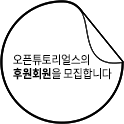Pointers and Addresses
A pointer is a variable that contains the address of a variable. Pointers are
much used in C, partly because they are sometimes the only way to express a
computation, and partly because they usually lead to more compact and efficient
code than can be obtained in other ways. Pointers and arrays are closely
related.
Let us begin with a simplified picture of how memory is organized. A typical machine has an array of consecutively numbered or addressed memory cells that may be manipulated individually or in contiguous groups. One common situation is that any byte can be a char, a pair of one-byte cells can be treated as a short integer, and four adjacent bytes form a long. A pointer is a group of cells (often two or four) that can hold an address. So if c is a char and p is a pointer that points to it, we could represent the situation this way:

The unary operator & gives the address of an object, so the statement
p = &c;
assigns the address of c to the variable p, and p is said to “point to” c. The & operator only applies to objects in memory: variables and array elements. It cannot be applied to expressions, constants, or register variables.
The unary operator * is the indirection or dereferencing operator; when applied to a pointer, it accesses the object the pointer points to. Suppose that x and y are integers and ip is a pointer to int. This artificial sequence shows how to declare a pointer and how to use & and *:
int x = 1, y = 2, z[10];
int *ip; /* ip is a pointer to int */
ip = &x; /* ip now points to x */
y = *ip; /* y is now 1 */
*ip = 0; /* x is now 0 */
ip = &z[0]; /* ip now points to z[0] */
The declarations of x, y, and z are what we’ve seen all along. The declaration of the pointer ip,
int *ip;
is intended as a mnemonic; it says that the expression *ip is an int. The syntax of the declaration for a variable mimics the syntax of expressions in which the variable might appear. This reasoning applies to function declarations as well. For example,
double *dp, atof(char *);
says that in an expression *dp and atof ( s ) have values of type double, and that the argument of atof is a pointer to char.
You should also note the implication that a pointer is constrained to point to a particular kind of object: every pointer points to a specific data type. (There is one exception: a “pointer to void” is used to hold any type of pointer but cannot be dereferenced itself.)
If ip points to the integer x, then *ip can occur in any context where x could, so
*ip = *ip + 10;
increments *ip by 10.
The unary operators * and & bind more tightly than arithmetic operators, so the assignment
y = *ip + 1
takes whatever ip points at, adds 1, and assigns the result to y, while
*ip += 1
increments what ip points to, as do
++*ip
and
(*ip)++
The parentheses are necessary in this last example; without them, the expression would increment ip instead of what it points to, because unary operators like * and ++ associate right to left.
Finally, since pointers are variables, they can be used without dereferencing. For example, if iq is another pointer to int,
iq = ip
copies the contents of ip into iq, thus making iq point to whatever ip pointed to.
[The C Programming Language p.94-95]
[참고 자료]
#include <stdio.h>
void main()
{
int x[] = { 1, 3, 6, 10, 15, 30 };
int n = 6;
int i, *ip;
ip = x;
for (i = 0;i<n;i++) // controlling the for-loop
printf("%d\n", *(ip + i)); // with a loop index
for (ip = x;ip<x + n;ip++) // controlling the for-loop
printf("%d\n", *ip); // with the pointer
ip = x + 3; // ip points at 10
printf("%d\n", *ip++); // prints x[3], moves ip to x[4]
printf("%d\n", *ip);
ip = x + 3;
printf("%d\n", *++ip); // increments ip first to point at x[4], prints x[4]
printf("%d\n", *ip); // prints x[4] again
ip = x + 3;
printf("%d\n", (*ip)++); // prints *ip (x[3]), then increments *ip to be 11
printf("%d\n", *ip); // prints *ip (x[3]) which is now 11
ip = x + 3;
printf("%d\n", *(ip++)); // prints *ip (now 11) then increments ip to x[4]
printf("%d\n", *ip); // prints x[4]
ip = x + 1; // ip points at x[1] = 3
printf("%d\n", *ip); // prints x[1]
printf("%d\n", ++*ip); // increments *ip (x[1]) to 4 then prints *ip (x[1], now 4)
printf("%d\n", *ip); // prints x[1] (now 4)
scanf_s("%d", &i);
}
https://www.nku.edu/~foxr/CSC362/CODE/pointer-to-array.c

